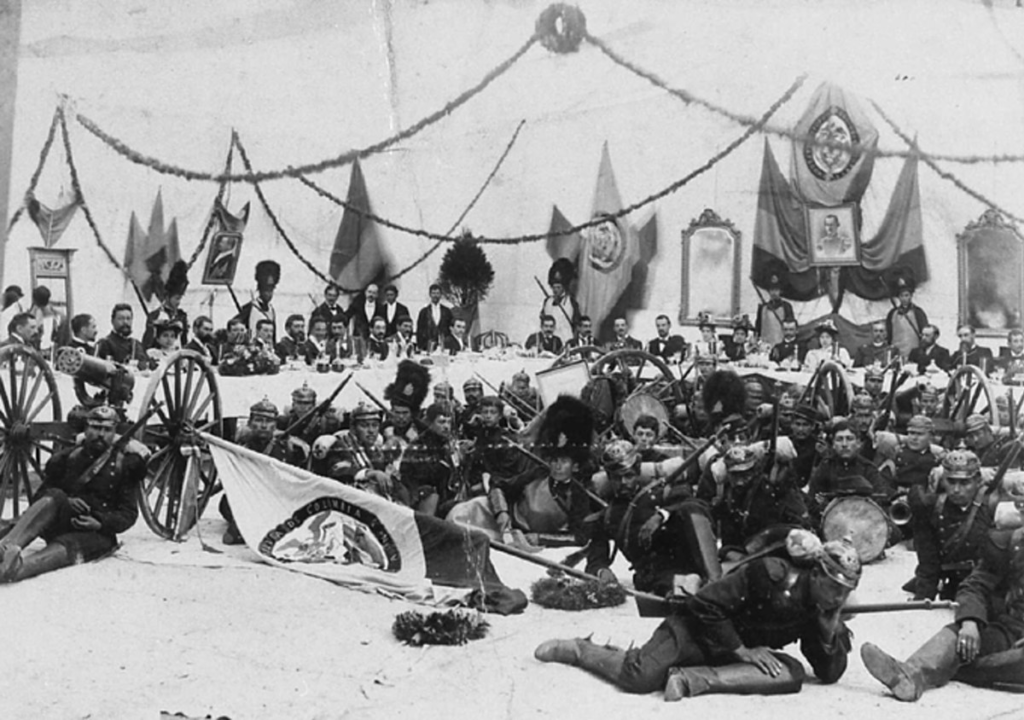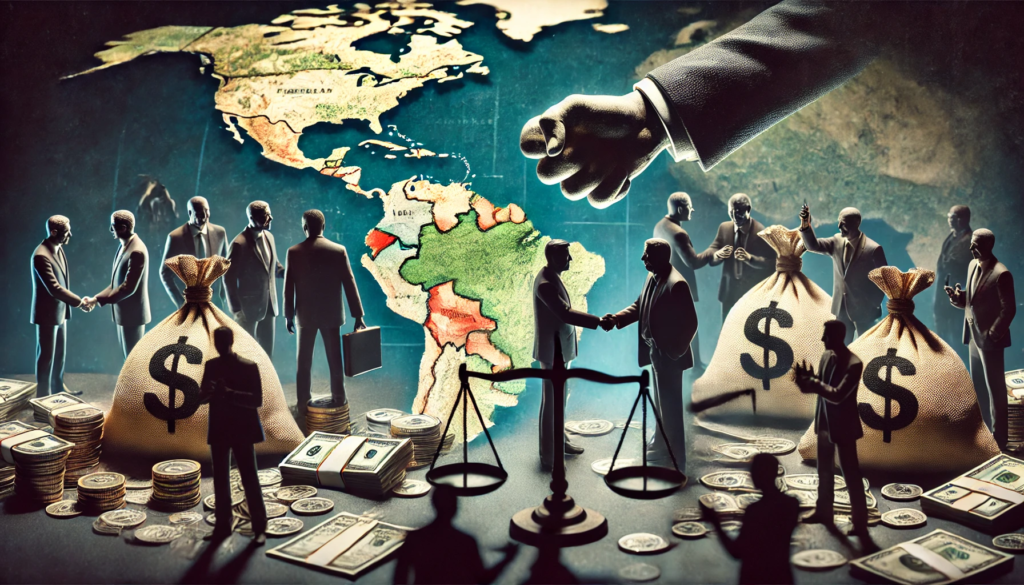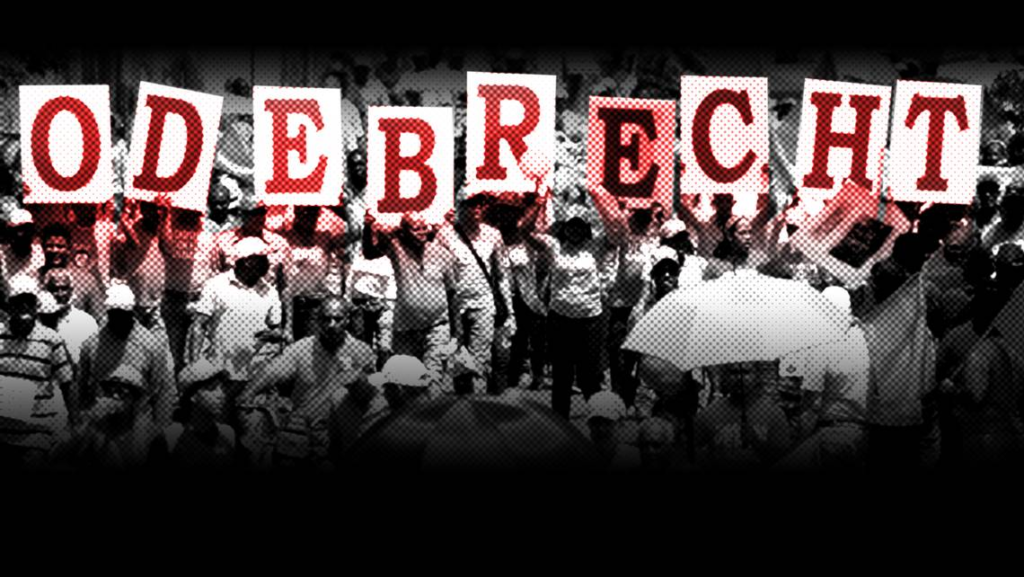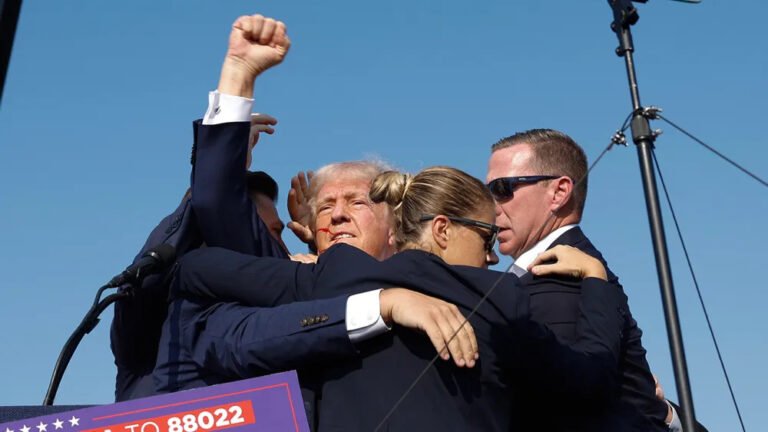Uncovering Political Corruption in Latin America: The Hidden Impact
Corruption is a pervasive issue that plagues many regions worldwide, but its impact is particularly profound in Latin America. This article delves into the historical and contemporary context of corruption in Latin American countries, analyzes its political and economic consequences, highlights notable scandals, and explores potential reforms and solutions to combat this persistent problem.
Historical Context of Corruption in Latin America
The historical roots of corruption in Latin America can be traced back to the colonial period, where the systems established by European colonizers laid the groundwork for corrupt practices that have persisted through the centuries. The legacy of these early practices continues to influence the political and economic landscape of the region today.
Colonial Era Corruption
During the colonial period, the Spanish and Portuguese empires implemented extractive institutions designed to exploit the natural resources and labor of their colonies. These institutions often operated with little oversight, creating fertile ground for corruption. Viceroys, governors, and other colonial officials wielded significant power, often using their positions for personal gain.
One prominent example is the “encomienda” system, which granted Spanish settlers the right to extract labor and tribute from indigenous populations. This system led to widespread abuse and exploitation, with “encomenderos” often enriching themselves at the expense of the native people. The lack of accountability and oversight meant that corrupt practices were rampant, setting a precedent for future generations.
18th Century Corruption
As the colonial period progressed, the 18th century saw the continuation of corrupt practices, with colonial officials engaging in bribery, embezzlement, and favoritism. One notable case involved the Real Audiencia of Mexico, the highest court in the Spanish colony. Members of the audiencia were often involved in corrupt activities, accepting bribes to influence legal decisions and protect the interests of wealthy landowners.
In Peru, the mining industry was a significant source of wealth and corruption. The mit’a labor system, which forced indigenous people to work in the mines, was fraught with abuses. Corrupt officials frequently manipulated the system to maximize their profits, often at the expense of the miners’ lives and well-being. The lack of effective oversight allowed these practices to continue unchecked, contributing to the entrenchment of corruption in the region.
19th Century Independence Movements
The 19th century marked a period of significant political change in Latin America as countries fought for and gained independence from European colonial powers. However, the transition to independent nation-states did not eliminate corruption; instead, it often exacerbated the problem.
During the independence movements, leaders like Simón Bolívar and José de San Martín relied on support from local elites, who often expected political favors and economic rewards in return. This quid pro quo arrangement laid the foundation for patronage systems that would dominate post-independence politics.
In the early years of independence, many Latin American countries experienced political instability and frequent changes in government. This instability created opportunities for corrupt practices as new leaders sought to consolidate power and reward their supporters. For instance, in Mexico, the presidency of Antonio López de Santa Anna (1833-1855) was marked by rampant corruption. Santa Anna’s administration engaged in extensive graft, selling government positions and land to the highest bidder.
Specific Cases of 19th Century Corruption
- Antonio López de Santa Anna’s Mexico: Santa Anna’s multiple terms as president of Mexico were characterized by significant corruption and personal enrichment. His government sold public offices and military commissions, leading to widespread bribery and embezzlement. Santa Anna himself profited from these practices, amassing considerable wealth during his time in power.




The Legacy of 19th Century Corruption
The corrupt practices established during the colonial and early post-independence periods had long-lasting effects on Latin American politics and society. The patronage systems and networks of favoritism that emerged created a culture of corruption that has persisted into the modern era. These historical practices laid the groundwork for the systemic corruption that continues to plague the region.
Moreover, the concentration of power in the hands of a few elites, combined with weak institutional frameworks, allowed corruption to become deeply entrenched. Efforts to combat corruption have often been stymied by the very systems that perpetuate it, making meaningful reform challenging.
Contemporary Context of Corruption
In the 21st century, Latin America continues to grapple with corruption at various levels of government and society. Despite democratic transitions in many countries, corruption remains a significant challenge, undermining democratic institutions and hindering development. The region has seen a proliferation of high-profile corruption scandals involving politicians, business leaders, and public officials.
Transparency International’s Corruption Perceptions Index (CPI) consistently ranks several Latin American countries among the most corrupt in the world. For instance, countries like Venezuela, Haiti, and Nicaragua often receive some of the lowest scores, indicating pervasive corruption. Even in countries with relatively higher CPI scores, such as Chile and Uruguay, corruption scandals periodically erupt, revealing deep-seated issues.
Political Consequences of Corruption
Corruption has far-reaching political consequences that undermine the foundations of democracy in Latin America. One of the most significant impacts is the erosion of public trust in democratic institutions. When citizens perceive their leaders and public officials as corrupt, it leads to disillusionment and apathy towards the political process. This, in turn, weakens democratic governance and can contribute to political instability.
The erosion of democratic institutions is another critical consequence. Corruption undermines the rule of law, as corrupt officials often evade justice and accountability. This creates a vicious cycle where corrupt practices become normalized, and efforts to combat corruption are stymied by those who benefit from the status quo. Furthermore, corruption can lead to the concentration of power in the hands of a few, weakening checks and balances and facilitating authoritarian tendencies.
Economic Repercussions of Corruption
The economic repercussions of corruption in Latin America are equally severe. Corruption distorts market mechanisms, leading to inefficiencies and misallocation of resources. One of the most significant economic impacts is the reduction in foreign investment. Investors are often deterred by the lack of transparency and the risk of having to engage in corrupt practices to do business. This reduces the inflow of capital needed for economic growth and development.
Corruption also exacerbates economic inequality. Public funds that should be used for social services, infrastructure, and development projects are often siphoned off by corrupt officials. This deprives citizens of essential services and widens the gap between the rich and the poor. The embezzlement of public resources can lead to underfunded education and healthcare systems, inadequate infrastructure, and poor social safety nets, perpetuating cycles of poverty and inequality.
Notable Corruption Scandals
Latin America has seen numerous high-profile corruption scandals that have had profound political and economic impacts. Some of the most notable include:
The Lava Jato Scandal (Operation Car Wash)
Originating in Brazil, the Lava Jato scandal is one of the largest corruption cases in history. It involved a vast network of politicians, business leaders, and officials who engaged in bribery, money laundering, and kickbacks involving the state-controlled oil company Petrobras. The scandal led to the imprisonment of numerous high-profile figures, including former Brazilian President Luiz Inácio Lula da Silva, and had far-reaching political repercussions across Latin America.
The Odebrecht Scandal
Closely linked to Lava Jato, the Odebrecht scandal involved the Brazilian construction giant Odebrecht, which paid bribes to secure lucrative contracts across Latin America. The scandal implicated political leaders and officials in multiple countries, including Peru, Colombia, Mexico, and Argentina. The revelations led to widespread public outrage and significant political fallout, including the resignation and imprisonment of several high-ranking officials.
The Panama Papers
The Panama Papers leak exposed the extensive use of offshore tax havens by politicians, business leaders, and public officials worldwide, including many in Latin America. The leak revealed how corrupt officials and wealthy individuals used offshore accounts to hide illicit gains and evade taxes. The scandal led to investigations and legal actions in several countries and highlighted the need for greater transparency and regulation in the global financial system.
Potential Reforms and Solutions
Combating corruption in Latin America requires a multifaceted approach that includes both international cooperation and local initiatives. Here are some potential reforms and solutions:
Strengthening Institutions and the Rule of Law
One of the most effective ways to combat corruption is by strengthening institutions and ensuring the rule of law. This involves creating independent and well-resourced anti-corruption agencies, enhancing judicial independence, and ensuring that law enforcement agencies have the tools and authority to investigate and prosecute corruption. Strengthening institutions also means promoting transparency and accountability in public administration through measures such as open government initiatives and digital governance.
Promoting Transparency and Accountability
Transparency is a crucial element in the fight against corruption. Governments should implement robust transparency measures, such as public disclosure of assets by public officials, open contracting, and transparent public procurement processes. Additionally, fostering a culture of accountability requires mechanisms for citizens to report corruption and participate in decision-making processes. Civil society organizations and the media play a vital role in holding public officials accountable and raising awareness about corruption.
Enhancing International Cooperation
Given the transnational nature of many corruption schemes, international cooperation is essential. Countries should collaborate on sharing information, tracking illicit financial flows, and prosecuting corrupt individuals who operate across borders. International organizations, such as the United Nations and the Organization of American States, can provide support and frameworks for cooperation. Regional initiatives, such as the Inter-American Convention against Corruption, also play a crucial role in fostering collaboration and harmonizing anti-corruption efforts.
Empowering Civil Society and the Media
Civil society organizations and the media are critical allies in the fight against corruption. These entities can act as watchdogs, advocate for policy reforms, and provide platforms for citizens to voice their concerns. Supporting independent journalism and protecting journalists from threats and intimidation is essential for ensuring that corruption is exposed and addressed. Additionally, civil society organizations can engage in grassroots efforts to promote ethical behavior and educate the public about the dangers of corruption.
Implementing Economic Reforms
Economic reforms aimed at reducing opportunities for corruption are also necessary. This includes simplifying regulatory frameworks, reducing bureaucratic red tape, and promoting competition. By creating a business environment that is transparent and competitive, governments can reduce the incentives for corrupt practices. Additionally, ensuring that public resources are managed efficiently and transparently can help address economic inequalities exacerbated by corruption.
Perspectives from Various Political Ideologies
A comprehensive analysis of corruption in Latin America requires an understanding of how different political ideologies perceive and propose to address this pervasive issue. The diversity of thought provides a more holistic view and potential strategies to tackle corruption effectively.
Left-Wing Perspectives
From a left-wing perspective, corruption is often viewed as a byproduct of neoliberal economic policies and the concentration of wealth and power in the hands of a few. Leftist critics argue that privatization and deregulation create opportunities for corrupt practices and undermine public welfare. The left advocates for stronger state intervention, public ownership of key industries, and policies aimed at reducing economic inequality.
Left-wing thinkers believe that corruption stems from systemic inequality and the exploitation inherent in capitalist systems. They argue that when wealth and power are concentrated, the elite can manipulate political and economic systems to their advantage, leading to widespread corruption.
Key Proposals from the Left:
- Nationalization of Key Industries: Ensuring that essential services and resources are controlled by the state can reduce the opportunities for private interests to engage in corrupt practices. Nationalization is seen as a way to prioritize public welfare over private profit.
- Strengthening Social Programs: By investing in healthcare, education, and social security, left-wing proponents argue that it is possible to create a more equitable society, reducing the desperation that often leads to corrupt behavior.
- Increasing Transparency and Participation: Encouraging greater citizen participation in governance and enhancing transparency in government operations can help combat corruption. Participatory budgeting and community oversight are examples of such initiatives.
- Progressive Taxation: Implementing progressive tax policies to redistribute wealth and fund public services is seen as a way to reduce inequality and the corrupting influence of money in politics.
Right-Wing Perspectives
Right-wing perspectives on corruption often focus on the inefficiencies and vulnerabilities of large, bureaucratic governments. Conservative critics argue that excessive government intervention and a lack of market competition create environments conducive to corruption. They advocate for smaller government, deregulation, and free-market policies to reduce opportunities for corrupt practices.
From a right-wing viewpoint, corruption is seen as a result of too much government control and interference in the economy. When the government has extensive control over resources and regulations, the argument goes, it creates numerous opportunities for bribery, favoritism, and embezzlement.
Key Proposals from the Right:
- Economic Liberalization: Reducing government intervention in the economy and promoting free markets are seen as ways to minimize corruption. When businesses operate in a competitive environment with minimal state interference, there are fewer opportunities for corrupt practices.
- Privatization: Privatizing state-owned enterprises is believed to reduce corruption by introducing private sector efficiency and accountability. Privatization is thought to eliminate the monopolistic power that can lead to corrupt practices in public enterprises.
- Strengthening Rule of Law: Ensuring that laws are applied consistently and fairly is crucial. This includes strengthening judicial independence and law enforcement agencies to combat corruption effectively.
- Reducing Bureaucracy: Simplifying regulatory frameworks and reducing red tape can decrease the opportunities for bureaucratic corruption. Streamlining government processes and making them more transparent can help curb corrupt practices.
Centrist Perspectives
Centrist perspectives on corruption typically seek a balanced approach, recognizing the need for both strong institutions and market-friendly policies. Centrists advocate for pragmatic solutions that combine elements of both left- and right-wing ideologies. This includes promoting transparency, strengthening institutions, and implementing economic reforms to create a fair and competitive business environment.
Centrists believe that corruption can be addressed by finding a middle ground that incorporates the strengths of both state intervention and market mechanisms. They emphasize the importance of political consensus and collaboration in addressing corruption.
Key Proposals from Centrists:
- Institutional Reforms: Implementing comprehensive institutional reforms to enhance the transparency, accountability, and efficiency of government operations. This includes measures such as e-governance, merit-based appointments, and performance evaluations for public officials.
- Public-Private Partnerships: Promoting partnerships between the public and private sectors to leverage the strengths of both. This approach can help ensure that public projects are executed efficiently while maintaining accountability.
- Balanced Regulation: Developing regulatory frameworks that protect public interests without stifling economic growth. This includes creating clear and consistent rules that are easy to follow and enforce.
- Inclusive Governance: Encouraging greater citizen participation in governance and decision-making processes. This can help ensure that policies reflect the needs and aspirations of the broader population, reducing the potential for corrupt practices.
Perspectives from Other Political Ideologies
In addition to the mainstream left, right, and centrist perspectives, other political ideologies offer unique insights and solutions to combat corruption.
Populist Perspectives
Populism, which can be found on both the left and right of the political spectrum, often arises in response to widespread discontent with corruption and elite governance. Populist leaders typically position themselves as champions of the “common people” against a corrupt and out-of-touch elite.
Key Proposals from Populists:
- Anti-Elite Rhetoric: Populist leaders often use anti-elite rhetoric to mobilize support and highlight the corruption of established political and economic elites.
- Direct Democracy: Promoting mechanisms of direct democracy, such as referenda and plebiscites, to give citizens more direct control over decision-making processes.
- Simplified Governance: Advocating for simplified and more transparent government processes to reduce bureaucratic corruption and make government more accessible to ordinary citizens.
Socialist and Communist Perspectives
Socialist and communist ideologies view corruption as a symptom of capitalist exploitation and advocate for a complete overhaul of the economic and political system. They propose radical changes to eliminate the root causes of corruption.
Key Proposals from Socialists and Communists:
- Collective Ownership: Advocating for collective or state ownership of resources and means of production to eliminate private profiteering and corruption.
- Worker Control: Promoting worker control and management of enterprises to ensure that decisions are made in the interest of the majority rather than a corrupt elite.
- Revolutionary Change: Calling for revolutionary change to dismantle existing power structures and establish a society based on equality and social justice.
Libertarian Perspectives
Libertarians emphasize individual freedom and minimal government intervention. They argue that corruption is primarily a result of government overreach and advocate for reducing the size and scope of government to combat corruption.
Key Proposals from Libertarians:
- Reducing Government Size: Advocating for a minimal state with limited powers to reduce the opportunities for corruption.
- Free Markets: Promoting free markets and voluntary exchanges as the most effective means of preventing corrupt practices.
- Individual Responsibility: Emphasizing personal responsibility and ethical behavior as key components of a corruption-free society.
Conclusion
Understanding the diverse perspectives on corruption from various political ideologies provides a comprehensive framework for addressing this complex issue in Latin America. Each ideology offers unique insights and solutions, from the left’s focus on reducing inequality and increasing state intervention to the right’s emphasis on market mechanisms and reducing government size. Centrist approaches seek a balanced path, while populist, socialist, communist, and libertarian perspectives add additional dimensions to the discourse.
Ultimately, combating corruption in Latin America requires a multifaceted approach that incorporates elements from multiple ideologies. By fostering political consensus and collaboration, strengthening institutions, promoting transparency and accountability, and implementing inclusive and fair economic policies, it is possible to create a more transparent, accountable, and equitable future for the region. The fight against corruption is a collective effort that demands commitment and action from governments, civil society, the private sector, and the international community.
Bibliographical references
- Transparency International. (2023). Corruption Perceptions Index 2023. Transparency International. Retrieved from https://www.transparency.org/en/cpi
- Pérez, O. J. (2015). The Legacy of the Colonial Past: Latin American Corruption. Journal of Latin American Studies, 47(4), 651-677. doi:10.1017/S0022216X1500100X
- Snyder, R. (2001). Politics after Neoliberalism: Reregulation in Mexico. Cambridge University Press.
- Morris, S. D., & Blake, C. H. (2009). Corruption and Politics in Latin America: National and Regional Dynamics. Lynne Rienner Publishers.
- De Sousa, L. (2006). Political Corruption in Portugal: Still a Secret Phenomenon? European Journal of Political Research, 45(3), 657-686. doi:10.1111/j.1475-6765.2006.00626.x
- Heidenheimer, A. J., Johnston, M., & LeVine, V. T. (1989). Political Corruption: A Handbook. Transaction Publishers.












